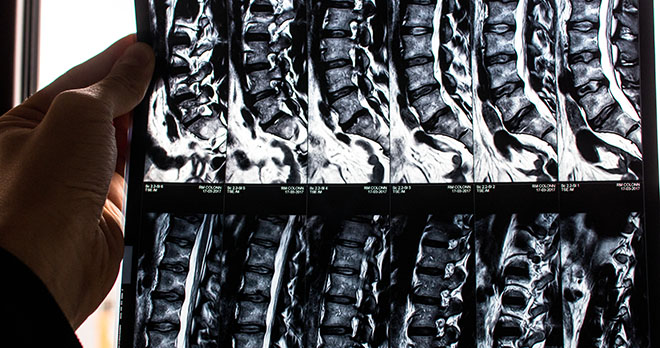RWK Goodman client awarded £3.4m for delay in diagnosis of cauda equina syndrome

Paul Rumley, Partner and Medical Negligence Solicitor of RWK Goodman has been vigorously pursuing the case on behalf of the client for the last 8 years.
At the time of the negligence the client was in his mid 20s and in full time employment. At around 8.00am on 10th April 2009 he injured his back at work. He went on to develop increasing pain and neurological symptoms. He was in fact in the early stages of a progressive cauda equina syndrome. At 00.15 hours on 11th April 2009, he was seen in the accident and emergency department at Stoke Mandeville Hospital where the clinicians negligently failed to diagnose the condition and sent him home. On 12th April 2009, he returned to the hospital where, in the face of deteriorating neurological symptoms, the correct diagnosis was finally made. At 03.00 hours on 13th April 2009, he underwent emergency decompression surgery for a large central and right paracentral disc prolapse. The defendant eventually agreed that the client should have been operated upon by no later than 12 noon on 11th April 2009.
The amount awarded includes £150,000 for general damages which cover:
- Low back pain;
- Pain and weakness in the legs;
- Impaired balance and gait;
- Urinary dysfunction;
- Bowel dysfunction;
- Sexual dysfunction;
- Psychiatric symptoms;
- Pressure sores;
- Weight gain (including a need for bariatric surgery).
As a result of the negligence the client requires care and assistance, an adapted property, equipment, physiotherapy, occupational therapy, CBT and ongoing medical review. In addition he is unlikely to be able to return to gainful employment.
Paul Rumley acting on behalf of the client said:
“If the client had undergone the emergency decompression surgery prior to 12.00 on 11th April 2009 the outcome would have been very different. Whilst it is likely he would have been left with intermittent, relatively minor, fatigue type back discomfort, the life changing symptoms would have been completely avoided. He would have been able to continue full time employment and have lived a normal, active and healthy family life. “
As a result of the negligence the client gained considerable weight which in turn has had an impact on his health and he will now require bariatric surgery. Paul Rumley said:
“Our client’s limited mobility and sedentary lifestyle by reason of the negligence has had an adverse effect on his weight. He is unable to lose weight by dieting alone and is unable to exercise enough to lose weight and so will require gastric sleeve surgery.”
One of the main points of contention between the parties in this case was that of the client’s life expectancy. The experts for both parties agreed that life expectancy was largely an issue in respect of obesity. Paul Rumley comments:
“The life expectancy aspect of this case was decided upon on the basis that our client will successfully undergo such surgery to at least help to reduce the effects of the negligence i.e. the immobility and weight gain he experienced. Our client’s life expectancy was reduced by 7 years once successful bariatric surgery was factored in.”
Our specialist cauda equina solicitors are here to help you make a claim for compensation following negligent treatment of the syndrome. Contact our enquiries team to find out how we can help.
Call now







